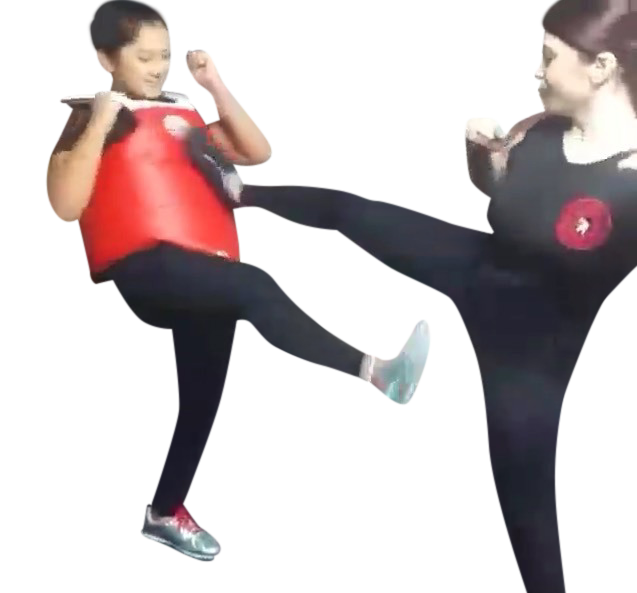Wing Chun Training for Women: Self-Defense and Empowerment
By Maurice Novoa a master under the Yuen Kay Shan, Ip Man and Pan Nam lineages.
1. Introduction
In recent years, the popularity of Wing Chun as a self-defense system has grown significantly among women. It offers a practical and effective approach to self-defense, empowering women with the skills and confidence to protect themselves in various situations.
In a world where personal safety is a concern for many, women are increasingly seeking effective self-defense options. Wing Chun, a martial art known for its efficiency and simplicity, has emerged as a popular choice. This training equips women with practical techniques and strategies that can be used to defend themselves in real-world situations.
In this article, we will explore the benefits of Wing Chun training for women, its focus on self-defense techniques, and how it fosters empowerment.
2. The Benefits of Wing Chun for Women
2.1 Self-Defense Skills
Wing Chun focuses on practical self-defense techniques that can be utilized regardless of a person’s size or strength. It emphasizes using proper body mechanics, positioning, and leverage to overcome opponents. Women who train in this style gain valuable skills to protect themselves effectively.
2.2 Increased Confidence
One of the significant benefits of Wing Chun training for women is the boost in self-confidence it provides. Learning and mastering self-defense techniques instills a sense of empowerment and self-assurance. As women become more proficient, they develop a stronger belief in their ability to defend themselves if the need arises.
2.3 Improved Physical Fitness
Wing Chun training offers an excellent way for women to enhance their physical fitness. The practice involves various physical exercises and drills that improve strength, agility, flexibility, and cardiovascular endurance. Regular training sessions contribute to overall fitness and well-being.
2.4 Mental Focus and Discipline
Wing Chun requires mental focus and discipline. Women who train develop concentration skills and learn to remain calm and composed even in stressful situations. This mental strength can be applied not only in self-defense scenarios but also in various aspects of life.
3. Focus on Practical Self-Defense Techniques
Wing Chun is renowned for its practicality and efficiency. It emphasizes techniques that can be used effectively in real-world encounters. Women learn to utilize their body structure, leverage, and quick reflexes to neutralize threats efficiently. Wing Chun techniques are designed to work against larger and stronger opponents, making it an ideal martial art for women’s self-defense.
The training encompasses a range of techniques, including strikes, kicks, joint locks, and trapping hands. Women are taught to target an attacker’s vulnerable areas, such as the eyes, throat, and groin, to disable them quickly and escape dangerous situations.
4. Empowerment through Wing Chun
Wing Chun training goes beyond physical self-defense skills and fosters empowerment for women. Here’s how:
4.1 Increased Awareness and Preparedness
By training in Wing Chun, women become more aware of their surroundings and potential threats. They learn to recognize and avoid dangerous situations whenever possible. This increased awareness enables them to take proactive measures to ensure their safety.
4.2 Assertiveness and Boundary Setting
Wing Chun training helps women develop assertiveness and the ability to set personal boundaries. As they gain confidence in their self-defense skills, they also develop the confidence to assert themselves in other areas of life. This empowerment extends beyond physical confrontations and positively influences personal and professional relationships.
4.3 Mental Resilience
The mental resilience developed through Wing Chun training is a crucial aspect of empowerment. Women learn to face challenges, overcome obstacles, and persevere through difficult situations. This mental strength translates into all aspects of life, providing women with the determination to achieve their goals.
5. The Chi Sau Advantage for Women
One unique aspect of training is the practice of Chi Sau, or “sticky hands.” In Chi Sau training, practitioners engage in close-range combat, maintaining constant contact with their opponent’s arms while executing defensive and offensive movements. Recent studies have shown that women are, on average, eight times more sensitive to touch than men. This heightened sensitivity means that, if trained in Wing Chun, women can develop contact reflexes that are exceptionally sharp and responsive.
This sensitivity and contact reflex development make the style particularly suited to women. The ability to detect subtle changes in an opponent’s movements through touch enables women to effectively anticipate and counteract attacks, even from larger opponents. This advantage makes Wing Chun a highly effective self-defense system for women, allowing them to neutralize threats with precision and efficiency.
6. Conclusion
Wing Chun training offers women a path to self-defense and empowerment. By learning practical techniques and developing confidence, women can feel more secure and in control of their personal safety. The physical and mental benefits of the style extend beyond self-defense, enhancing overall fitness, mental resilience, and assertiveness. The practice of Chi Sau further enhances women’s contact reflexes, providing a unique advantage in self-defense situations. As more women embrace Wing Chun, they are embracing a means to protect themselves while gaining valuable skills that positively impact various areas of their lives.

